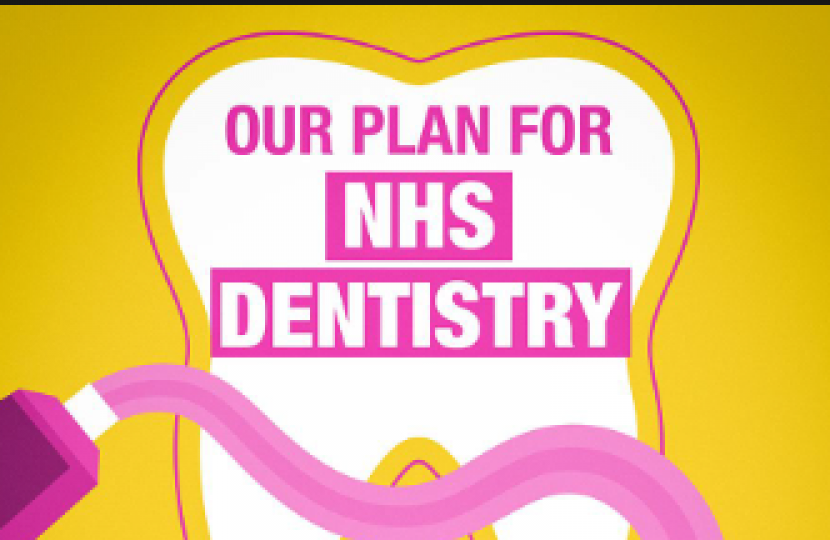
Paul Howell MP supports radical new plan to recover and reform NHS dentistry.
Patients will benefit from millions more NHS dental appointments over the next year, thanks to a major new plan to ensure easier and faster access to NHS dental care across England.
Under the plans, supported by £200m of government funding, NHS dentists will be given a ‘new patient’ payment of between £15-£50 (depending on treatment need) to treat around a million new patients who have not seen an NHS dentist in two years or more
Published today by the NHS and the government, the plan could see up to 2.5 million additional NHS dental appointments delivered for patients over the next 12 months, including up to 1.5 million extra treatments being delivered.
The plan sets out how the NHS and government will drive a major new focus on prevention and good oral health in young children and deliver an expanded dental workforce.
The plan will also see the government roll out a new ‘Smile For Life’ programme which will see parents and parents-to-be offered advice for baby gums and milk teeth, with the aim that by the time children go to school, every child will see tooth brushing as a normal part of their day.
To attract new NHS dentists and improve access to care in areas with the highest demand, around 240 dentists will be offered one-off payments of up to £20,000 for working in under-served areas for up to three years.
The public will also be able to see which practices in their local area are accepting new patients on the NHS website and the NHS App. To promote the increased availability of appointments, the government will also roll out a marketing campaign encouraging anyone who has not been seen by a dentist for the past two years to access treatment.
NHS work will also be made more attractive to dental teams with the minimum value of activity increasing to £28 (from £23).
New ways of delivering care in rural and coastal areas will also be rolled out, including launching ‘dental vans’ to help reach the most isolated communities.
In addition, for the first time ever, a water fluoridation programme will be rolled out by government, which could reduce the number of tooth extractions due to decay in the most deprived areas of the country.
Subject to consultation, the programme would enable an additional 1.6 million people to benefit from water fluoridation, first expanding across the North East.
The health service will build a pipeline of new dentists and other dental care professionals, including increasing dental training places by up to 40% by 2031/32, as part of the NHS Long Term Workforce Plan.
The plan, published today, also includes new measures to attract dentists to work in the NHS, including supporting more graduate dentists to work in NHS care. The government will consult on whether dentists should be required to work in the NHS for a period upon completion of their training.
Amanda Pritchard, NHS chief executive, said:
“COVID-19 has significantly impacted NHS dental care, and teams across the country are working hard to recover services and meet rising demand.
“Building on the reforms we have already implemented, the health service will now introduce a wide range of practical measures to help make it easier for people to see a dentist, from incentivising dentists to take on new patients to supporting dentists to be part of the NHS in areas where access is challenging.
“Recovering dentistry is a priority for the NHS and this plan is a significant step towards transforming NHS dental services for the better.”
The Prime Minister, Rishi Sunak, said:
“NHS dentistry was hit hard by the pandemic and while services are improving – with 23% more treatments delivered last year compared to the previous year – we know that for too many people, accessing a dentist isn’t as easy as it should be.
“That’s why we’re taking action today to boost the number of NHS dentists, help cut waiting lists and put NHS dentistry on a sustainable footing for the long-term. Backed by £200 million, this new recovery plan will deliver millions more NHS dental appointments and provide easier and faster access to care for people right across the country.”

